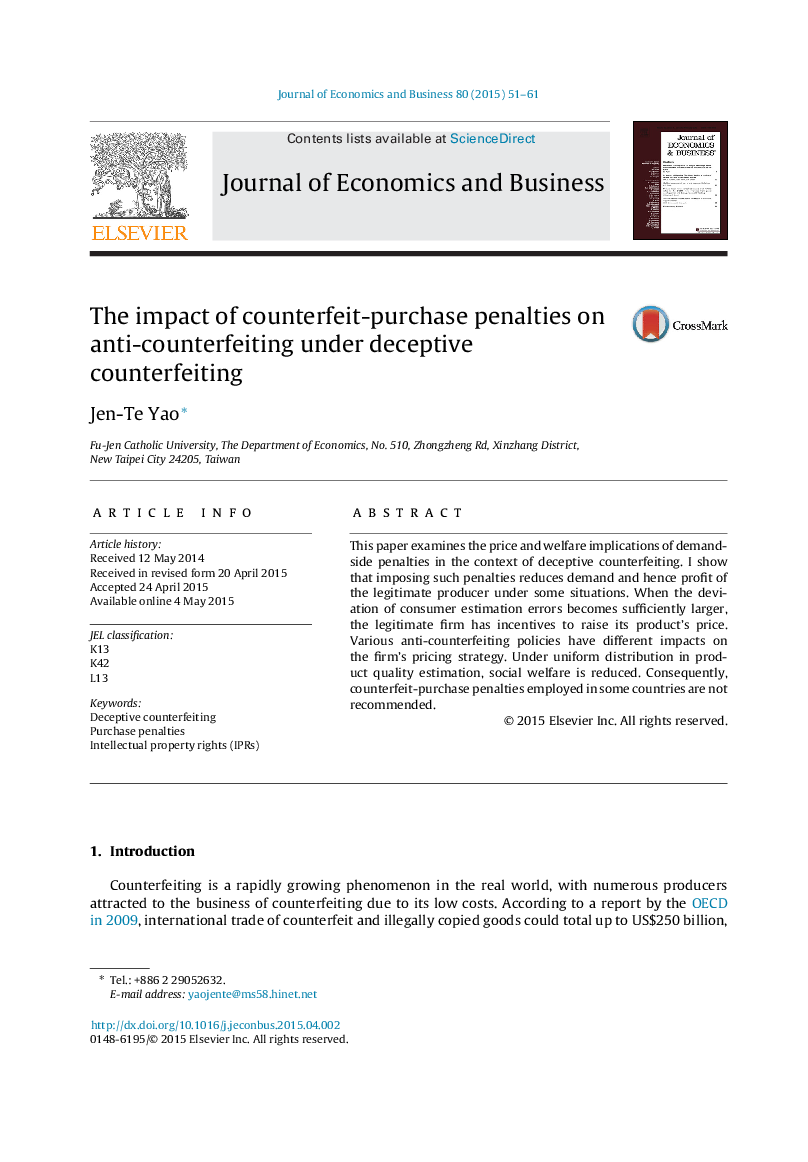| Article ID | Journal | Published Year | Pages | File Type |
|---|---|---|---|---|
| 957932 | Journal of Economics and Business | 2015 | 11 Pages |
•A deceptive-counterfeiting model is developed.•Imposing counterfeit-purchase penalties on consumers reduces demand and hence profit of the legitimate producer.•A larger deviation of consumer estimation errors in quality increases the product's price.•Social welfare may be reduced.
This paper examines the price and welfare implications of demand-side penalties in the context of deceptive counterfeiting. I show that imposing such penalties reduces demand and hence profit of the legitimate producer under some situations. When the deviation of consumer estimation errors becomes sufficiently larger, the legitimate firm has incentives to raise its product's price. Various anti-counterfeiting policies have different impacts on the firm's pricing strategy. Under uniform distribution in product quality estimation, social welfare is reduced. Consequently, counterfeit-purchase penalties employed in some countries are not recommended.
